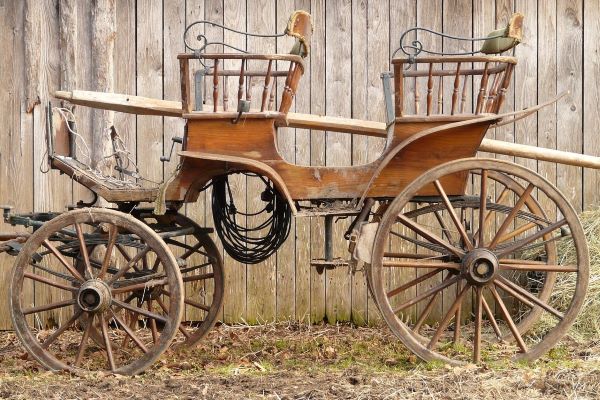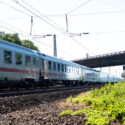Eine kleine nachtmusik. Carmen. The four seasons. Live music on Munich’s Viktualienmarkt in summertime. Underneath the terrace where I’m sitting, people are walking by, and I can hear bicycles with the familiar popping sounds of the bike spokes, as they pause the pedaling and roll on by. And then, a violin. The little concert is played by four musicians. Standing outside the Heilig Geist church, the sounds of their instruments bounce off the walls of the church.
I had just finished reading about the soaring electric passenger car sales in France and Germany and was relaxing with the classical music and the sunshine. Then I had an absurd thought forming in my mind: Did Mozart, Vivaldi, and Bizet travel green to their concerts? As I wandered off for my daily fresh groceries on the Victuals market, I held on to the thought, as a bizarre thought experiment.
Just for the sake of argument
Well, Mozart lived between 1756 and 1791. Vivaldi lived from 1678 to 1741, and Bizet lived between 1838 and 1875. The first German steam locomotive connected Nuremberg and Fürth in the year 1835 and continued for 22 years. The first French steam locomotive followed soon thereafter and connected Mechelen and Brussels in 1837. That means Bizet lived in a time of an engine that used fossil fuel. But Mozart and Vivaldi were limited to horse and carriage because I doubt they walked or rode across the landscape carrying bags of music scores. But who knows? Also, the entire question is ridiculous.
So if we go back to the creator of the opera Carmen, Mr. Bizet could have, in his young years, traveled in a steam locomotive. He could have done so in either France or Germany and thereby inadvertently contributed to our world’s chores with fossil fuel.
Why the question doesn’t make sense
The steam engine was part of the engineering ingenuity that harnessed energy transfer to reach higher production thereby raising the living standards for the masses. It is part of a reality with faster travel, often for leisure, but also for business. It is ingrained in our societies after some two hundred years and the benefits of the industrial age are immeasurable.
You might want to look deeper at the importance of air travel in societies that require fast travel, for instance for business reasons. You may have argued in the 18th century that traveling by horse and carriage was all fine, but good luck finding companies who want to organize meetings or events, or travel companions for holidays that appreciate that logic. In some situations, we simply need to travel fast in our modern society, where businesses, organizations, and people move at a faster pace when facilitating meeting people and the decision-making that often follows.
The steam engine was part of the engineering ingenuity that harnessed energy transfer to reach higher production thereby raising the living standards for the masses.
Barely audible electric cars
At this point I had of course already purchased my groceries and was merrily doing number juggling while walking back to my hotel. On the Victuals market across the street, groups of people were sitting in the shadows of the blossoming trees and drinking beer. There was music, the sun was out, and people were walking about on the hot summer afternoon. More strings began to compete for the air, and a piano accompanied them. Then the music stopped. A slam was heard as someone picked up a free local newspaper from one of the many trays on the street below. Reality kicked open the door and put an end to the daydreaming. Mozart, Vivaldi, and Bizet gently stepped aside in my thought process as the barely audible sound of an electric car was heard.
In some situations, we simply need to travel fast in our modern society, where businesses, organizations, and people move at a faster pace.
An electric kick scooter swooshes past
A mobile phone rings somewhere. An electric kick scooter rolls past quietly. High heels are clicking against the pavement as a group of ladies are walking towards the nearby beer garden.
You may have argued in the 18th century that traveling by horse and carriage was all fine.
I suppose the moral of the story is that we can ask all kinds of absurd questions to make a point, such as to place blame for the effects of industrialization on a generation. In this case, technical innovation led to societal development. But okay, for the sake of (comical) reasoning, Mozart and Vivaldi traveled green, Bizet most likely did but it could be looked into to be certain. If time should be spent that way, that is.
Urban mobility is changing
What is clear is that urban mobility is changing. It is quietly (pun intended) entering our daily lives, with electric and hybrid engines fitted to vehicles. Two of which I noticed just now, with an electric kickscooter and an electric car humming past. People’s habits will change with them.





